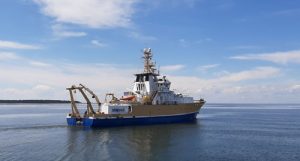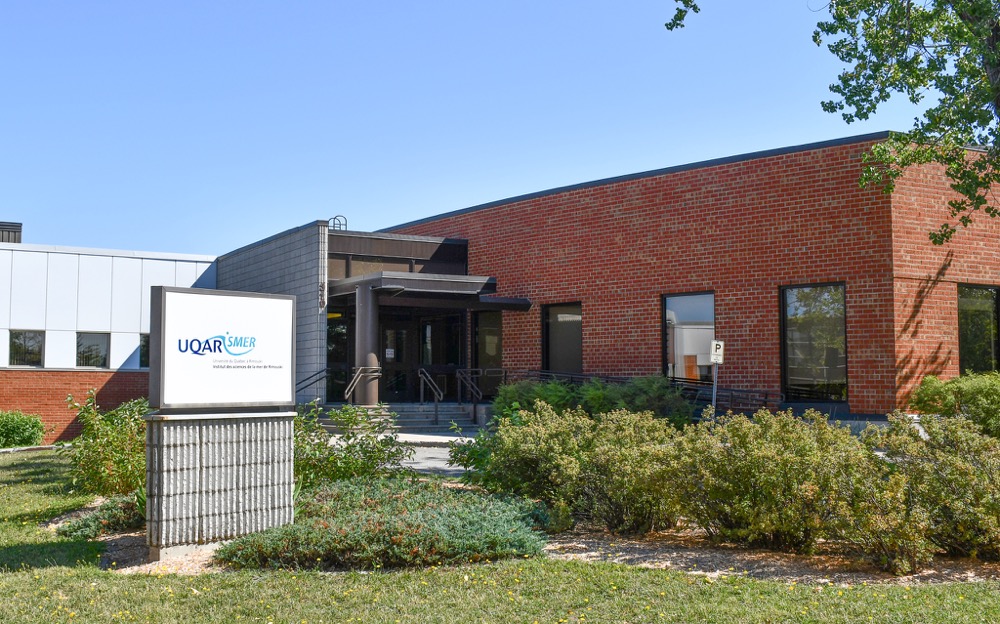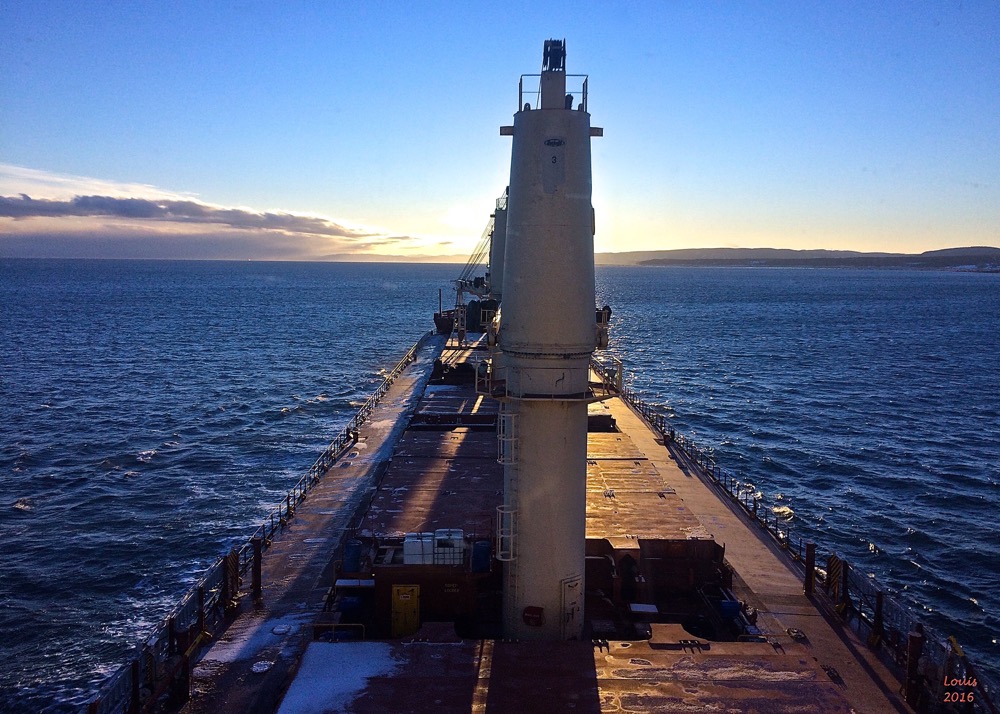By Jean-Francois Bouchard
A marine acoustics research station will be deployed next spring in the center of the Laurentian Channel, off Rimouski. A unique project in the world co-directed by the Rimouski Institute of Marine Sciences (ISMER) of the University of Quebec at Rimouski (UQAR) and the applied research center Maritime Innovation.
This research station will enable the acquisition of data on the noise footprint of ships passing through the St. Lawrence Estuary. It will also help identify the direct causes of noise on board ships in order to enable shipowners to find remedial solutions.
“The acquisition of new knowledge on the noise generated by maritime transport is an important issue for the protection of marine mammals in the St. Lawrence. The data from the new marine acoustic research station will make it possible to develop concrete solutions to reduce noise impacts and promote sustainable cohabitation in this ecosystem endowed with exceptional marine biodiversity, while allowing UQAR-ISMER and Innovation maritime sector to develop expertise and cutting-edge talent that are unique in Canada, ”explains ISMER director Guillaume St-Onge.
The research station will be unique in the world and will meet ANSI / ISO standards. Research will be carried out until spring 2024 thanks to a financial contribution from Transport Canada ($ 2.5M) and the Ministry of the Economy and Innovation ($ 1.5M). Various private partners, including several shipowners as well as the Rimouski companies Multi-Électronique and OpDAQ Systèmes, are also associated with this project, which costs more than $ 5.7 million.
“Although Canada’s coasts and marine species are more protected than ever, our government remains committed to preserving and protecting our vulnerable marine environment,” said Transport Minister Marc Garneau. “The Government of Canada’s Quiet Vessels Initiative addresses a critical aspect of addressing the effects of underwater noise from ships. We look forward to seeing how we can develop other solutions to make ships quiet in Canada based on the results of the Marine Acoustics Research Station project. “
“The St. Lawrence Seaway is at the heart of Quebec’s economic development. The establishment of this research station will help us better understand the effects of maritime traffic on its habitats. The Government of Quebec is proud to support this initiative. It will contribute to the development of expertise for scientific and industrial partners, in addition to having positive spinoffs for the entire maritime sector, “said the Minister of Economy and Innovation, Pierre Fitzgibbon.

The Coriolis II research vessel will be used to deploy the research station from next spring. The Government of Canada’s assistance comes from the Silent Ships Initiative and that of the Government of Quebec from the Support Program for the Development of Strategic Sectors and Niches of Excellence. (Main photo: Louis Rhéaume, photo of Coriolis II: Arthur Bieber)
About ISMER
The most important French-speaking university research institute in marine sciences in Canada, the Rimouski Institute of Marine Sciences (UQAR-ISMER) brings together a large critical mass of researchers and students from various disciplinary backgrounds who are dedicated to the discovery and advancement of knowledge on marine ecosystems, with a view to sustainable development.
Attached to the University of Quebec at Rimouski (UQAR), ISMER brings together a community of experts in biology, chemistry, physics and geology. They are particularly interested in the functioning of marine ecosystems with regard to climate change, the impacts of human activity on ecosystems, the development of marine bioresources, marine geology and natural risks. The research work of ISMER professors and students is carried out across the globe, from the Arctic to Africa to Argentina.
The institute’s mission is to contribute to the discovery and advancement of fundamental and applied knowledge of marine and coastal environments, in order to be able to assess the impacts of human activity on the environment and its resources .
Born from the merger of the Department of Oceanography of UQAR and INRS-Océanologie, ISMER officially began its activities on March 1, 1999. At its inception, the Institute had 14 professor-researchers. It currently has 23 research professorships and 45 associate professors.






